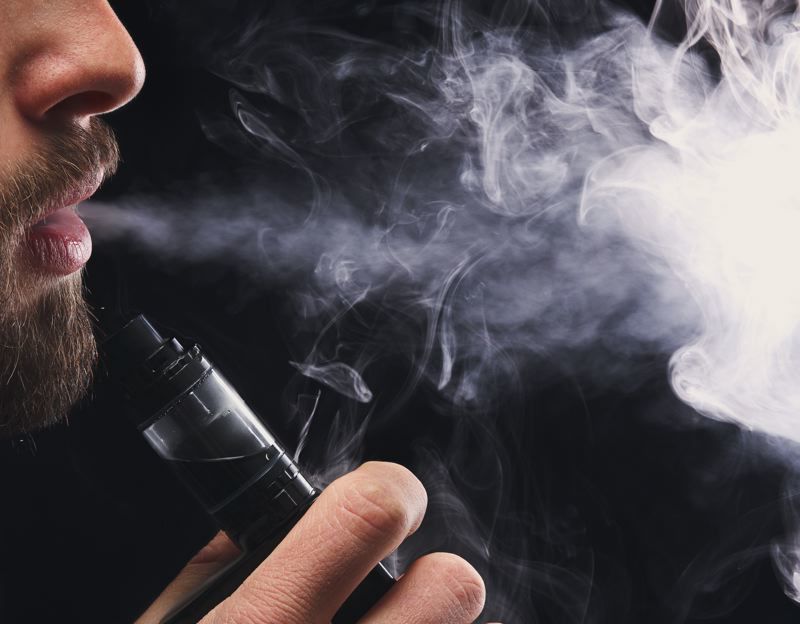Oregon court blocks flavored cannabis vape product ban
Published 8:00 am Friday, November 15, 2019

- DREAMSTIME - Oregon's Court of Appeals administrator has issued a temporary order blocking a statewide ban on flavored cannabis vape products.
Oregon’s Court of Appeals has blocked the statewide ban on flavored cannabis vape products.?
The Nov. 14 order in the case of Herban Industries OR LLC v. Oregon Liquor Control Commission, comes a month after the court approved a similar stay on the ban for flavored nicotine vaping products. Gov. Kate Brown issued an executive order Oct. 4 asking the Oregon Health Authority and Oregon Liquor Control Commission to draft temporary orders prohibiting the sale of all flavored vape (tobacco and cannabis) products following the death of two Oregonians.?
As of Thursday, Nov. 14, 2,172 cases of vaping-related illness and acute lung injury have been reported across the country with 42 deaths, according to the U.S. Centers for Disease Control and Prevention.?Two deaths in Oregon have been tied to vaping.
The legal challenge, requesting the Court of Appeals to review OLCC rules set forth by the liquor commission, was brought by Herban Industries OR LLC of Oakland, California, which operates as Dyme Distribution and sells a line of cannabis vape cartridges called Winberry Farms.?
An Oct. 31 motion by Portland attorneys Andrew DeWeese and Kevin Jacoby of Green Light Law Group claimed the temporary rules issued by the liquor commission, at Brown’s request, did not go through proper rulemaking procedures. They also said the order crippled their clients’ business.?
“With respect to likelihood of irreparable harm in the absence of a stay, petitioner explains that enforcement of the rule is having a catastrophic effect on its business,” Appellate Commissioner Theresa Kidd wrote in the legal order. “Sales of the Winberry brand flavored vape cartridges represent more than 80% of petitioner’s monthly income. … In absence of those revenues, petitioner cannot sustain workforce of over 30 farmers, drivers, packagers and sales associates.”?
Cannabis retailers throughout Oregon will be allowed to put flavored THC vaping products back on their shelves for the time being. According to the Court of Appeals, its likely judicial review of the temporary ban could favor petitioners.?
“I think the most important thing is this: that the products that were banned have never been shown to cause any of these vape-related lung illnesses,” DeWeese said. “Hopefully now we’ll get some temporary rules that really protects consumers rather than take products off the market that have gone through Oregon’s great testing (process).”?
Action to protect consumers
The order granting a stay is the most recent development in the battle over vaping and the state’s attempt to protect Oregonians from harm. Back in October, both the Oregon Health Authority and Gov. Brown urged Oregonians to stop vaping until such time as adequate research had been done to pinpoint the cause of the illnesses and lung injuries.?
In a Friday, Nov. 15, statement Brown’s office said the court’s order was unfortunate in light of the ongoing public health threat posed by vaping and the alarming growth in the number of Oregon’s youth using those products. “What is clear is that it is far past time for the Trump administration and the U.S. Food and Drug Administration to follow through on their promises to ban flavored vaping products so that we can protect children across the country from vaping-related illness and a lifetime of nicotine addiction,” said Charles Boyle, spokesman for the governor’s office.
“In the meantime, Gov. Brown will continue to work with stakeholders and the Legislature to find long-term solutions to protect the public health from vaping-related illness. Gov. Brown continues to urge Oregonians to heed the public health warning of the Oregon Health Authority and to stop vaping immediately.”
In mid-November, the CDC published research showing that researchers found vitamin E acetate — a sticky substance used in supplements and skin cream — in the lungs of 29 patients treated for vaping illness. The substance, which is banned in Ohio and Colorado, is reported to be used in the production of cannabis vape cartridges as a thickening agent or to dilute products.?
“I’m hoping that, with the CDC coming out, these findings around vitamin E acetate that we’ll get some kind of governmental actions that will actually protect consumers,” DeWeese added.
sstites@pamplinmedia.com





